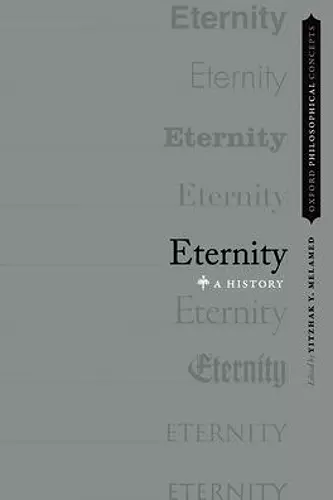Eternity
A History
Format:Paperback
Publisher:Oxford University Press Inc
Published:4th Aug '16
Should be back in stock very soon
This paperback is available in another edition too:
- Hardback£137.50(9780199781874)

Eternity is a unique kind of existence that is supposed to belong to the most real being or beings. It is an existence that is not shaken by the common wear and tear of time. Over the two and half millennia history of Western philosophy we find various conceptions of eternity, yet one sharp distinction between two notions of eternity seems to run throughout this long history: eternity as timeless existence, as opposed to eternity as existence in all times. Both kinds of existence stand in sharp contrast to the coming in and out of existence of ordinary beings, like hippos, humans, and toothbrushes: were these eternally-timeless, for example, a hippo could not eat, a human could not think or laugh, and a toothbrush would be of no use. Were a hippo an eternal-everlasting creature, it would not have to bother itself with nutrition in order to extend its existence. Everlasting human beings might appear similar to us, but their mental life and patterns of behavior would most likely be very different from ours. The distinction between eternity as timelessness and eternity as everlastingness goes back to ancient philosophy, to the works of Plato and Aristotle, and even to the fragments of Parmenides' philosophical poem. In the twentieth century, it seemed to go out of favor, though one could consider as eternalists those proponents of realism in philosophy of mathematics, and those of timeless propositions in philosophy of language (i.e., propositions that are said to exist independently of the uttered sentences that convey their thought-content). However, recent developments in contemporary physics and its philosophy have provided an impetus to revive notions of eternity due to the view that time and duration might have no place in the most fundamental ontology. The importance of eternity is not limited to strictly philosophical discussions. It is a notion that also has an important role in traditional Biblical interpretation. The Tetragrammaton, the Hebrew name of God considered to be most sacred, is derived from the Hebrew verb for being, and as a result has been traditionally interpreted as denoting eternal existence (in either one of the two senses of eternity). Hence, Calvin translates the Tetragrammaton as 'l'Eternel', and Mendelssohn as 'das ewige Wesen' or 'der Ewige'. Eternity also plays...
"The five essays Melamed (Johns Hopkins) has gathered trace concepts of, and controversies about, eternity as conceived in Platonic, medieval, modern, Kantian, and analytic philosophy. The collection is distinguished by its interdisciplinary approach. Each scholarly essay is followed by enticing "reflections" that extract philosophical claims from broader themes. Highlights include insights into divine love that emerge in Dante's portrayal of God's relation to time; arguments from ancient India that the language of the Vedas conveys timeless meaning; and descriptions of eternity in the verse of Palestinian poet Mahmoud Darwish...Narrower than an introduction, decidedly philosophical in its interdisciplinary forays, yet historical in substance, this careful, usefully synoptic book...warrants a look, particularly by specialists." -- CHOICE
ISBN: 9780199781867
Dimensions: 208mm x 137mm x 23mm
Weight: 363g
352 pages